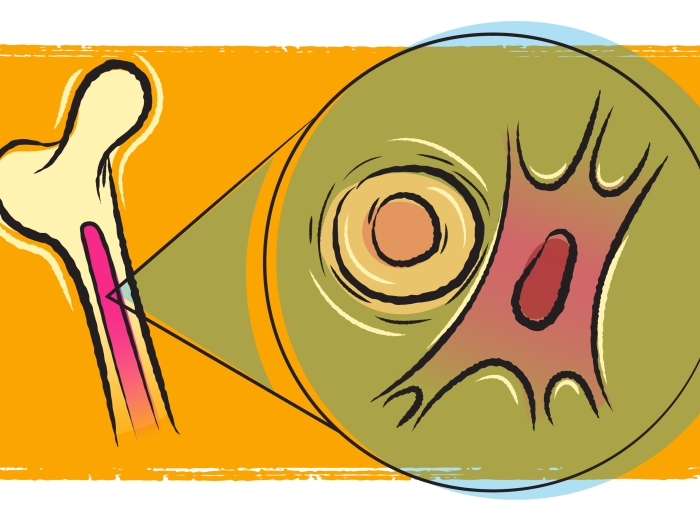Targeting this protein will stop scar-cells from forming as they begin
5:00 AM
Author |

Systemic sclerosis is the scaring of multiple organs within the body resulting in difficulty in functioning for these organs. The disease can become deadly if the organ scaring isn’t treated properly.
Researchers at the University of Michigan Health System have identified a protein in the disease that may be a new target for treatment.
In the study titled “Pharmacological inhibition of TAK1 prevents and induces regression of experimental organ fibrosis”, a team of researchers from the John Varga, M.D. lab identified that blocking the TAK1 protein using a new drug called HS-276 can stop the production of collogen that causes scar-forming cells in systemic sclerosis.
“HS-276 significantly reduced the expression of collagen, and fibrotic disease associated molecular patterns including Fibronectin EDA and Tenascin-C in SSc explanted fibroblasts,” said Swarna Bale, first author of the study.
“The reduced TAK1 activation in SSc skin biopsies suggested that, if it can be further thoroughly investigated, this can be a leading anti-fibrotic drug molecule.”
HS-276 showed reduced collagen levels in mice as well as a reduction in progression of systemic sclerosis. This was evidenced from reduced levels of TAK1 activation as well as reducing fibrotic disease associated molecular patterns including Fibronectin EDA and Tenascin-C.
This drug has been studied with arthritis in the past and has been effective in treating collagen-induced arthritis.
The next step is to begin testing the efficiency of the HS-276 drug in genetic mice models and investigating the reproducibility of the antifibrotic effects of the drug in the mice models used.
Additional authors: Swarna Bale, Priyanka Verma, Bharath Yalavarthi, M. Asif Amin, Pei-Suen Tsou, Dinesh Khanna, Swati Bhattacharyya, and John Varga, Division of Rheumatology, Department of Internal Medicine, University of Michigan. Scott A. Scareno, Philip F. Hughes, Department of Pharmacology and Cancer Biology, EydisBio Inc., Durham. Timothy A.J. Haystead, Department of Pharmacology and Cancer Biology, Duke University School of Medicine.
Funding: NIAMS AR42309 and R44AR076772-02A1
Paper cited: “Pharmacological inhibition of TAK1 prevents and induces regression of experimental organ fibrosis,” JCI Insight DOI: 10.1172

Explore a variety of health care news & stories by visiting the Health Lab home page for more articles.

Department of Communication at Michigan Medicine
Want top health & research news weekly? Sign up for Health Lab’s newsletters today!





